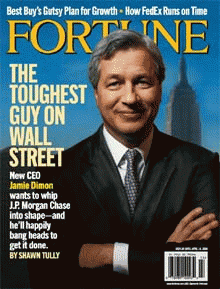At the same time a major investigative piece by the Washington Post's Jason Horowitz alleged that the teenaged Mitt Romney held down a gay classmate and cut his hair. When confronted with the facts of this and at least one other so-called "schoolboy prank" -- and the corroboration of several of his prep school buddies -- Romney said that while he didn't remember the incident, he'd ". . . seen the reports" and was "not going to argue with that." Predictably, the conservative media see it as either a total fabrication on the part of the "left-wing" or a tempest in a teapot. Romney revilers see it as evidence that the former Massachusetts governor has always lacked empathy and compassion.
Although both presidential campaigns are already using these two interconnected stories as goads for enhanced fundraising, it will likely have little impact on the presidential race. Few voters will switch from Romney to Obama -- or Obama to Romney -- on the basis of gay marriage or bullying.
What one might hope would decide the final vote is an issue -- and a story -- which received far less ink or interest this past week . . .
On Thursday, J.P. Morgan Chase & Co.'s, chief executive, Jamie
Dimon announced that his bank -- the nation's largest -- had lost $2
billion in trades over the past six weeks and could face an additional
$1 billion (some fear $6 billion) in losses, due to excessively risky
bets. And yet, when first interviewed by MSNBC,
Dimon, the so-called "smartest guy in the room," termed the bets
"poorly executed" and "poorly monitored," a result of "many errors,"
"sloppiness," and "bad judgment." But not to worry,
Dimon told Bloomberg News, "We will admit it, we will fix it and move
on." In other words, what Dimon is saying, "Trust us; we'll tweak a bit
here, tweak a bit there and I promise it will never happen again. It's
really not such a big deal."
Now I may not know Hell's first whisper about high finance, or the difference between a "hedge" and a "bet" or be able to define "credit default swap" and "collateralized debt obligation," but I can spot a hubristic B.S. artist a mile off.
In attempting to understand how such a fiasco could occur, four words come to mind: A LACK OF REGULATION.
To the lion's of Wall Street, as well as Mitt Romney, John Boehner, Eric Cantor, virtually every Republican and many Democrats as well, the notion of regulating financial markets is as anathema as a cheeseburger to a chasid. They argue that government regulations impinge on their ability to make a profit. To me, this makes about as much sense as a burglar complaining that home alarm systems hurt their ability to make a living.
Shortly after the 2008 financial meltdown, Congress began the work of investigating precisely what made the markets go haywire, who the responsible parties were, and what sort of legislation would be required to hopefully keep it from happening again. That process would eventually lead to the Dodd-Frank Wall Street Reform and Protection Act. Despite being hailed as a heavy-weight piece of legislation that would bring ". . . the most significant changes to financial regulation in the United States since the regulatory reform that followed the Great Depression," by the time this 848-page measure was enacted on July 21, 2010, it lacked both muscle and spine. Why? Because dozens of CEOS, along with hundreds of lobbyists armed with millions of dollars went up to Capitol Hill with the singular aim of convincing the members of Congress that the more toothless the regulation, the better for all concerned.
Arguably, the two most important aspects of Dodd-Frank are its creation of a powerful Consumer Financial Protection Bureau, which -- at least in theory -- represents the interests of consumers against Wall Street; and the so-called "Volker Rule," which ideally restricts United States banks from making certain kinds of speculative investments that do not benefit their customers . In essence, the Volker Rule is supposed to be a ban on proprietary trading (PTT) by commercial banks, whereby deposits are used to trade on the bank's own accounts. Despite the fact that the final version of Dodd-Frank included many exceptions to this rule -- and that most of its provisions do not go into effect until July 21, 2012, Wall Street has been yowling long and hard that this "draconian measure" is taking away their ability to turn a profit.
Draconian? Anyone who thinks that Congress and the White House's attempts to remedy the causes of the Great Recession are "severe," "overly restrictive" or "draconian," obviously knows very little about America's political history. In response to the Crash of '29 -- which was caused largely by institutions and individuals buying stock on tremendous margin -- Congress enacted several sweeping measures that focused on a single theme: protecting consumers by forcing Wall Street into the light. These measures included:
- The Securities Act of 1933, which required all publicly traded companies to register themselves and offer prospectuses to investors;
- The Securities Exchange Act of 1934, which forced publicly traded companies to make regular financial disclosures;
- The Commodity Exchange Act of 1936, which required all commodities and futures to be traded on organized exchanges.
- The Federal Deposit Insurance Corporation (FDIC) to protect bank depositors through an insurance fund paid for by the banks themselves;)
- The Glass-Steagall Act which separated insurance companies, investment banks and commercial banks.
In 1999, Congress passed the Gramm-Leach-Bliley Financial Services
Modernization Act, which spelled the end of Glass Steagall. It was,
without question, one of Congress' all-time worst pieces of
legislation. Wall Street argued that unless and until Glass Steagall
was overturned -- thus toppling the "Chinese Wall" between commercial
and investment banking -- their ability to engage in derivative trading
(the lucrative practice of making bets on bets) and hedging (using
some bets to offset the risks of other bets) was seriously hampered.
And they were correct; not too long after Gramm-Leach-Bliley was passed
by the House (362-57) and Senate (90-8) and signed by President Bill
Clinton, the American public added the word "Enron" to their vocabulary.
Although it's likely pie-in-the-sky, I firmly believe that we must reinstitute Glass-Steagall. To take people like J.P. Morgan's Jamie Dimon at their word when they say that Wall Street can solve its own problems without any government regulation or oversight is foolhardy at best, disastrous at worst. To leave everything to free market forces is to put faith in the faithless. The nation's financial giants, with the acquiescence of Presidents from Reagan to Obama, have made sure that profits remain privatized, risk socialized. Both Wall Street and Congress have convinced a wide swath of America that some banks are "too big to fail."
But there may be a glimmer of hope on the horizon. In its most recent annual report, the Dallas Federal Reserve Bank -- one of that institution's most conservative branches -- noted that "The too-big-to-fail institutions that amplified and prolonged the recent financial crisis remain a hindrance to full economic recovery and to the very ideal of American capitalism. It is imperative that we break up the big banks.
Willem Buiter, one of all-time favorite economists once wrote that "Self-regulation is to regulation as self-importance is to importance."
It is time to stop paying so much attention to bullies -- whether at prep school or on Wall Street -- and pay more attention to banks . . .
(Note: You can view every article as one long page if you sign up as an Advocate Member, or higher).






